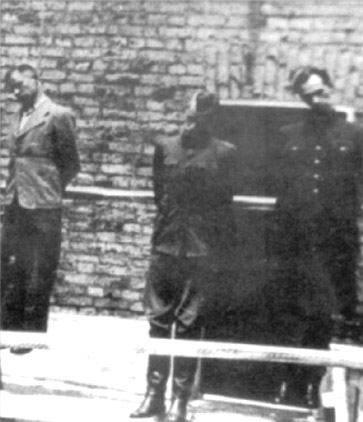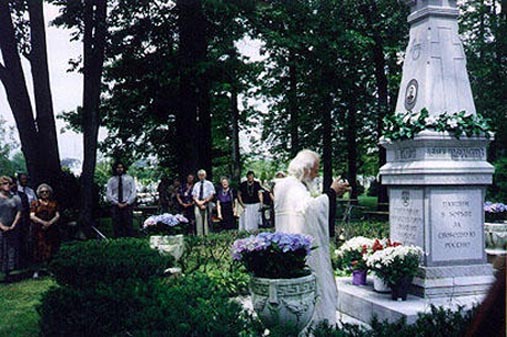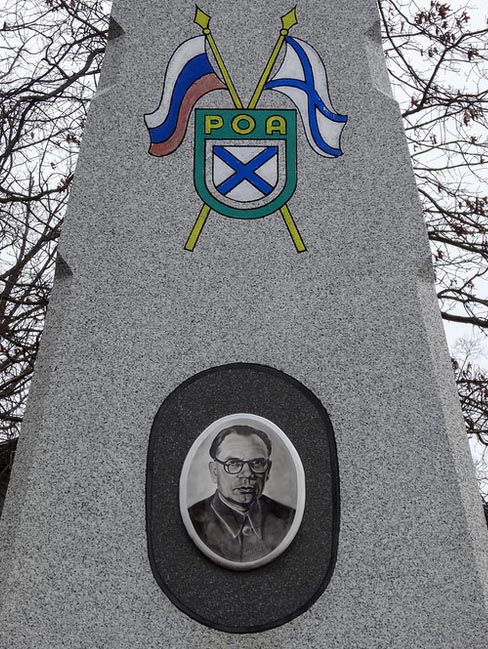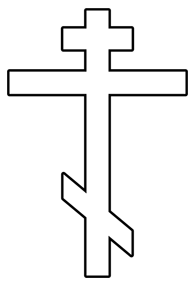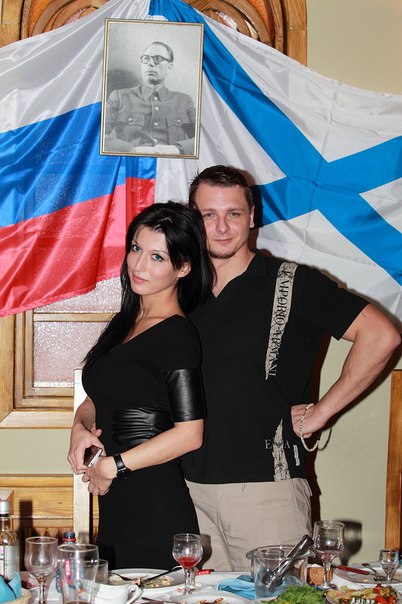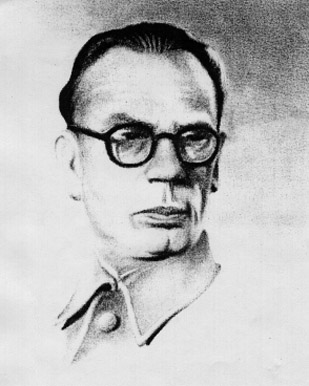
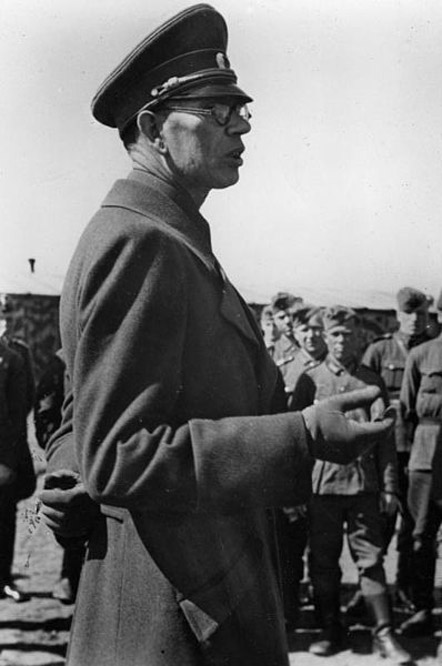
[Above: October 1944.]
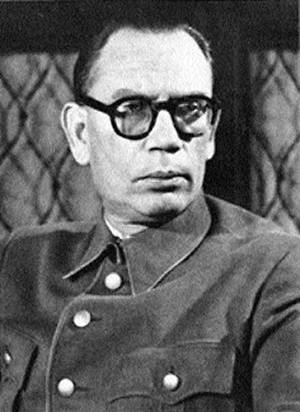
[Above: ...]
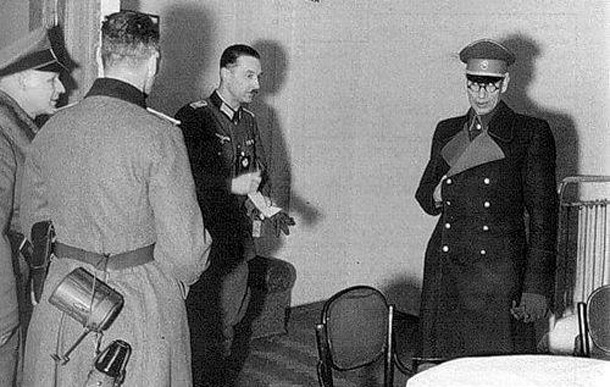
[Above: ...]
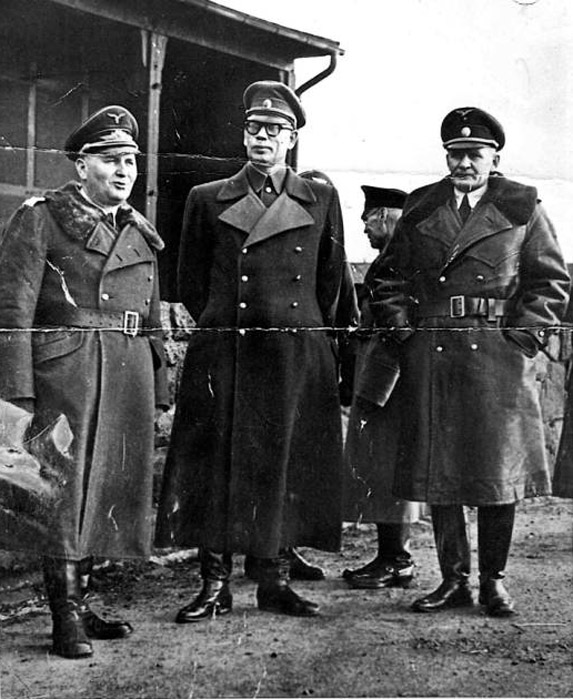
[Above: ...]
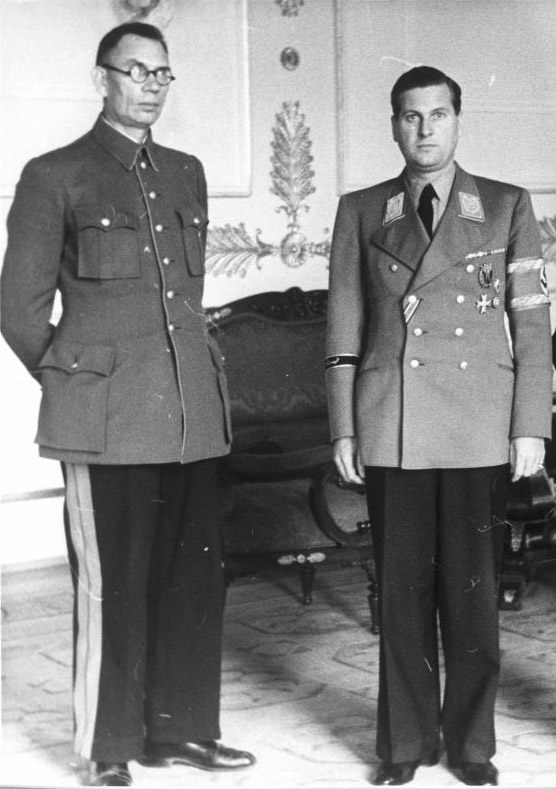
[Above: Vlasov with National Socialist youth leader Balder von Shirach.]
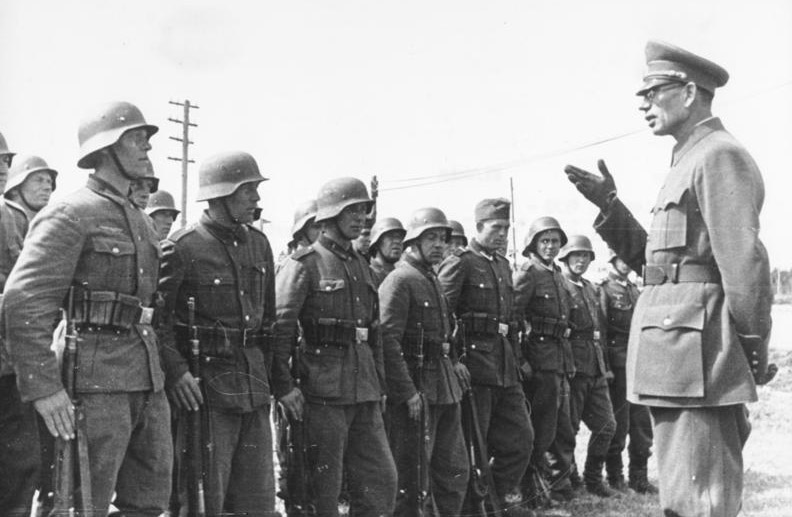
[Above: General Vlasov with Russian volunteers of the POA/ROA, 1943.]
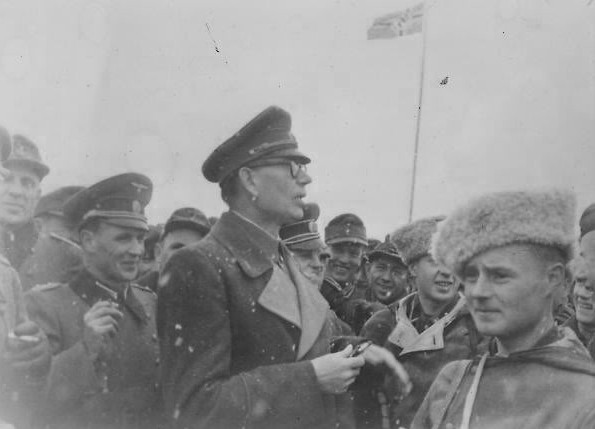
[Above: ...]
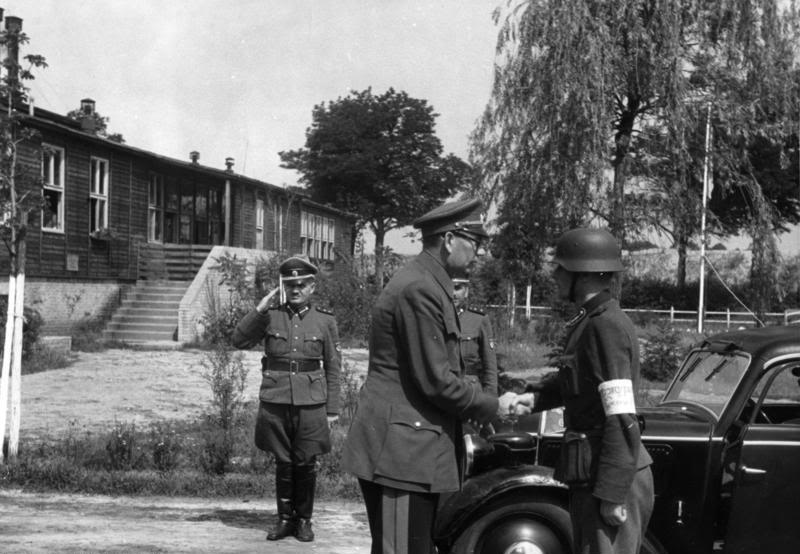
[Above: General Vlasov at Dabendorf with POA/ROA officers. In the background is Oberst Meandrow.]
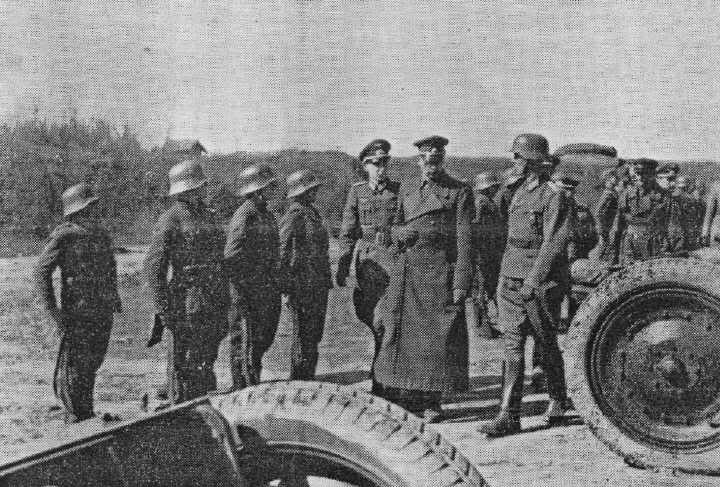
[Above: General Vlasov with Russian volunteers.]
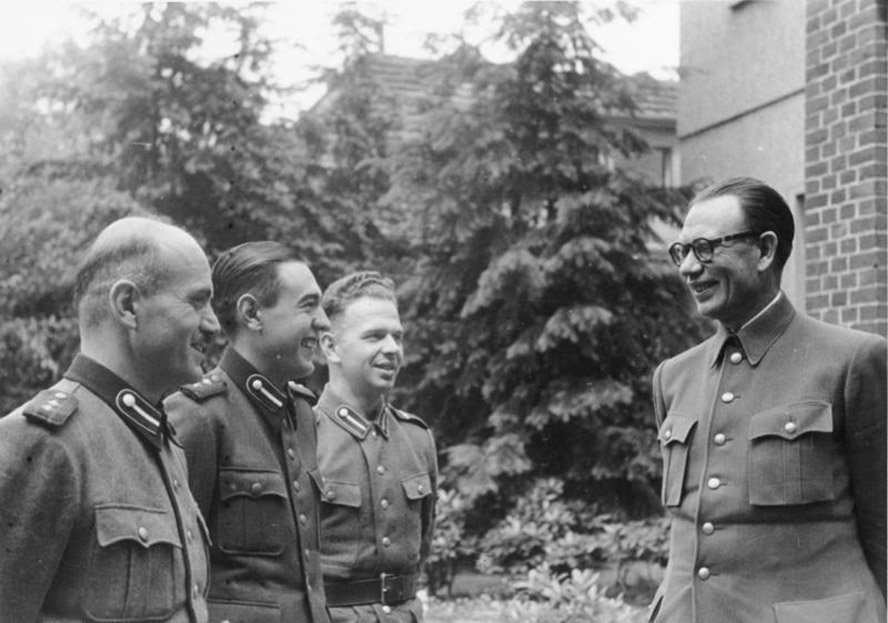
[Above: General Vlasov with Russian volunteers.]
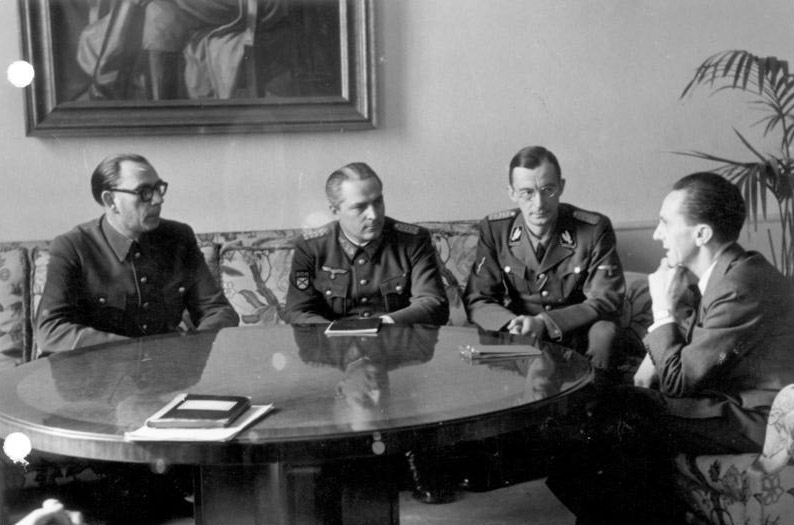
[Above: General Vlasov (left) and General Shilenkov (center) of the Russian Liberation Army meeting with Joseph Goebbels. Circa February 1945.]

[Above: General Trochin and General Vlasov at the POA/ROA school of Dabendorf, 1944.]
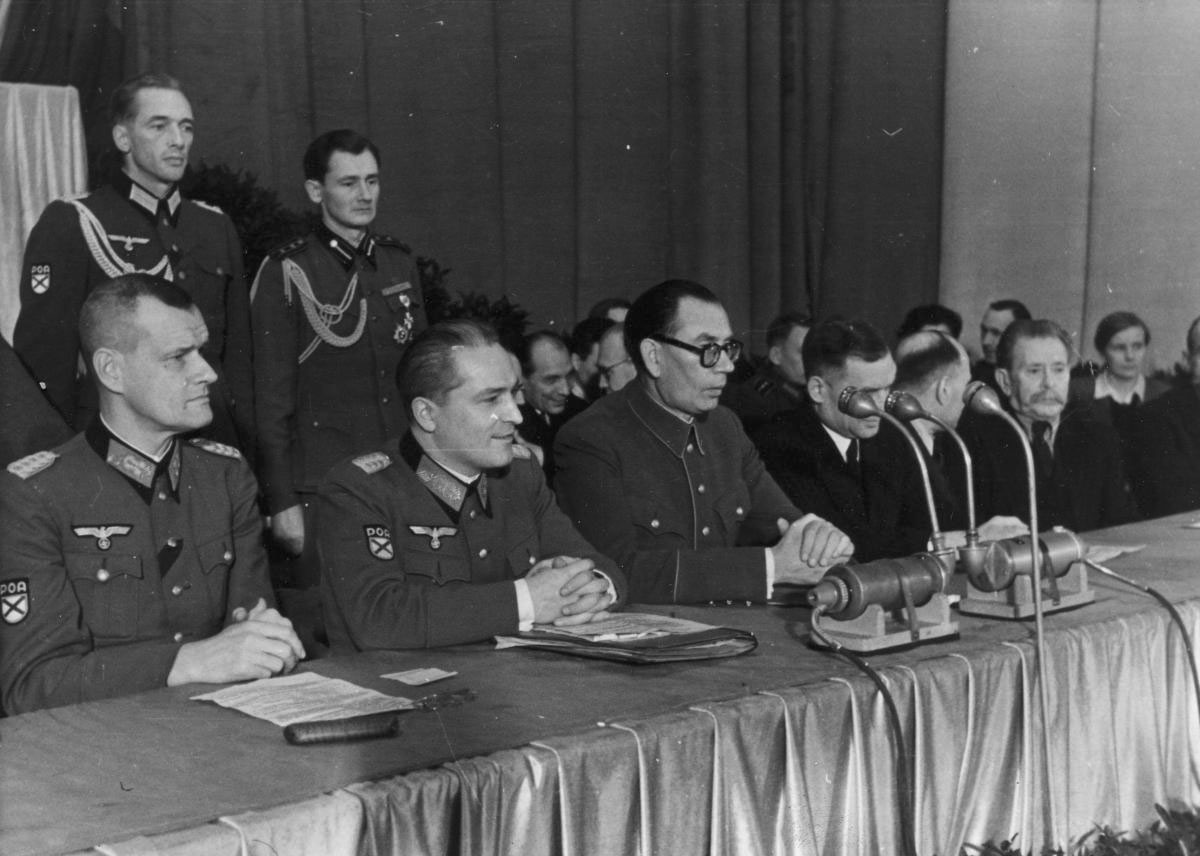
[Above: General Vlasov (third from left), Generalleutnant Georgii Nikolaevich Zhilenkov (August 2, 1910 - 1946, second from left) and Generalmajor Fedor Ivanovich Trukhina (February 19, 1896 - August 2, 1946, left) addressing officers of the POA/ROA.]
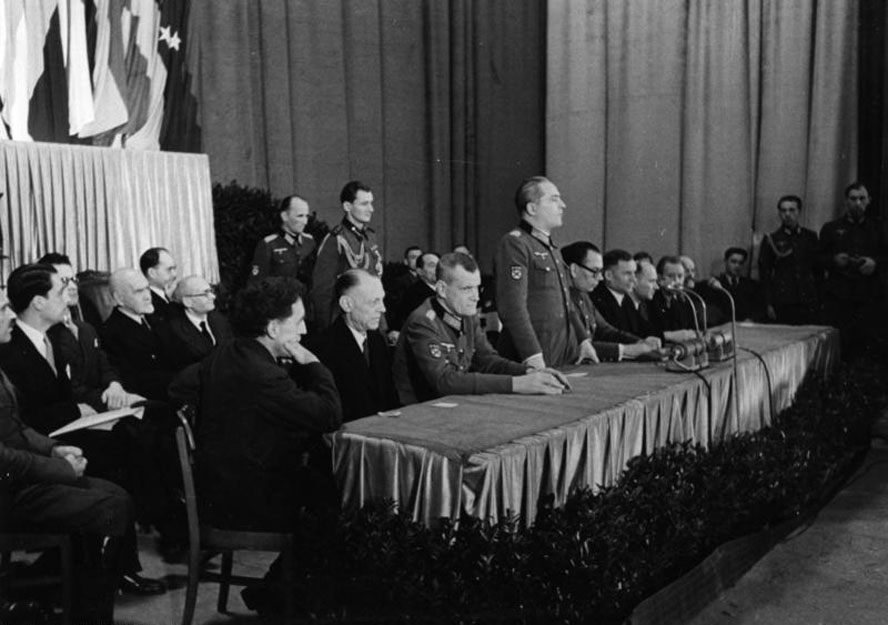
[Above: Wide shot of the picture above.]
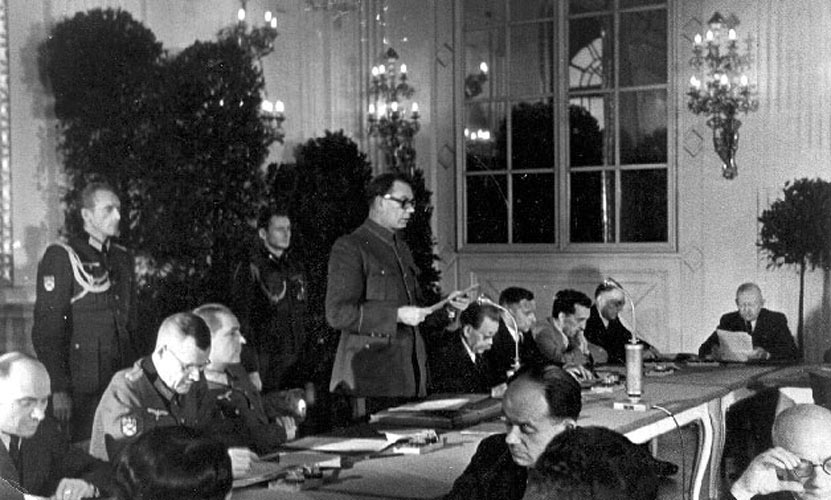
[Above: As above, General Vlasov, now standing, addressing officers of the POA/ROA.]
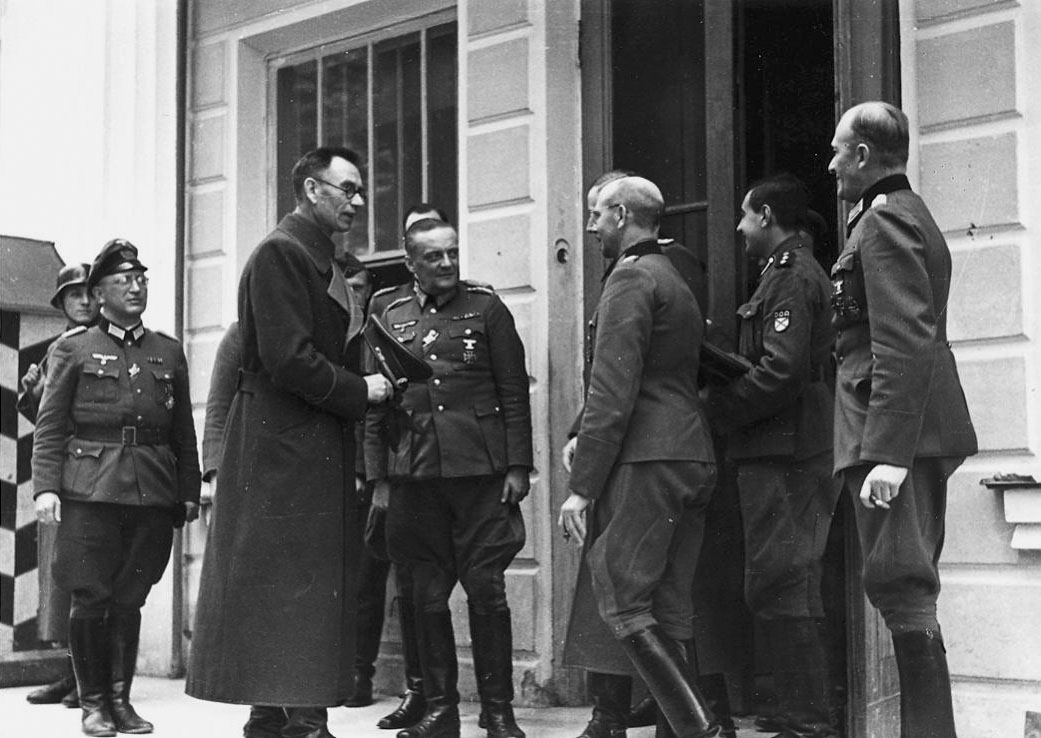
[Above: From left to right, unidentified officer, General Vlasov, Generalmajor Hans-Ludwig Speth (Kommandeur 28.Jager-Division), Herbert Loch (General der Artillerie) and other unidentified officers.]

[Above: General Vlasov.]
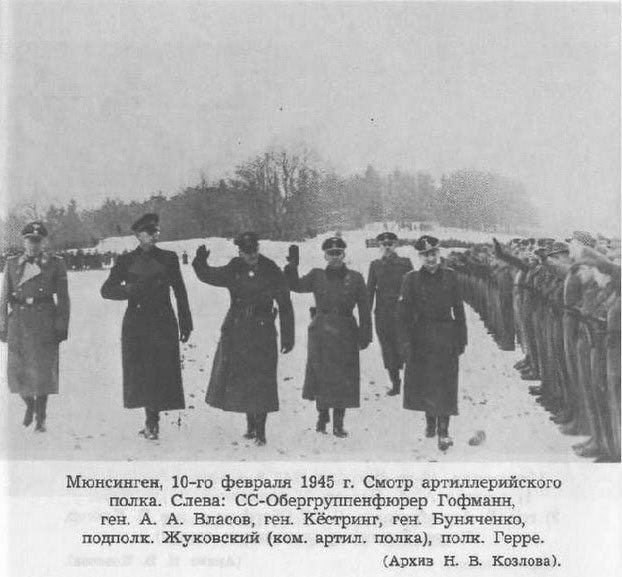
[Above: Münsingen, February 10, 1945. Parade of an artillery regiment. From the left: SS-Obergruppenführer Hofmann, General A. A. Vlasov, General Köstring, General Bunyachenko, Lieutenant-Colonel Zhukovski (the regiment commander), Colonel Herre. (Archives of N. V. Kozlov).]
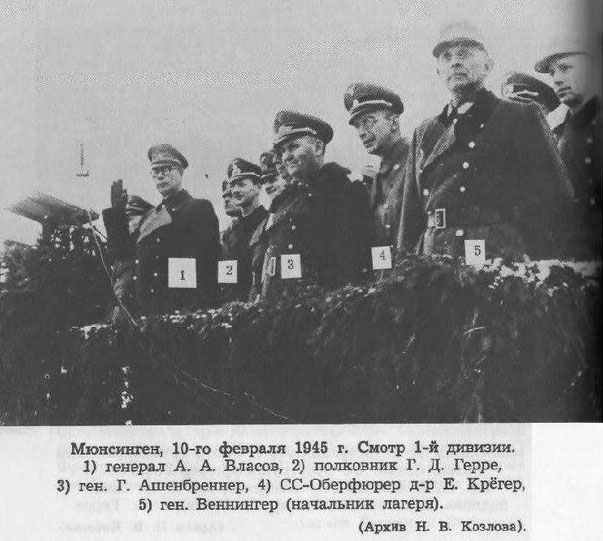
[Above: Münsingen, February 10, 1945. Parade of the 1st division. 1) General A. A. Vlasov, 2) Colonel H. D. Herre, 3) General H. Aschenbrenner, 4) SS-Oberführer Dr E. Kröger, 5) General Wenninger (army camp chief). (Archives of N. V. Kozlov).]
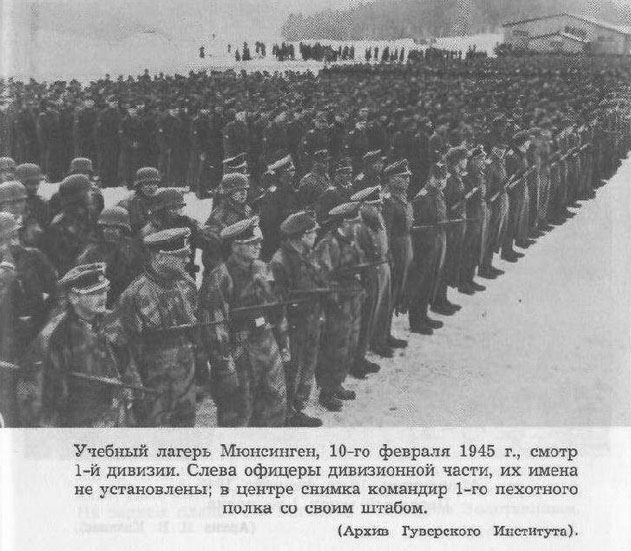
[Above: Münsingen training facility, February 10, 1945, parade of the 1st division. To the left there are division officers, their names are unstated; in the center of the photo there is the commander of the 1st infantry regiment with his staff officers. (Archives of Hoover Institution).]
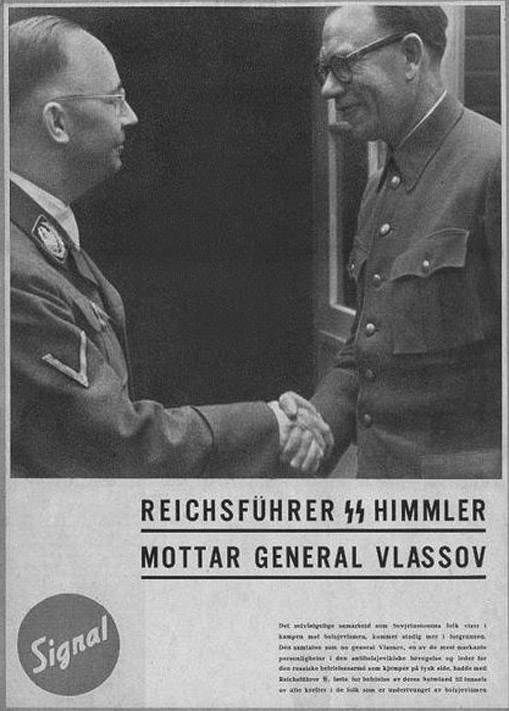
[Above: General Vlasov and Heinrich Himmler pictured in the Swedish edition of the popular Signal Magazine, 1943.]
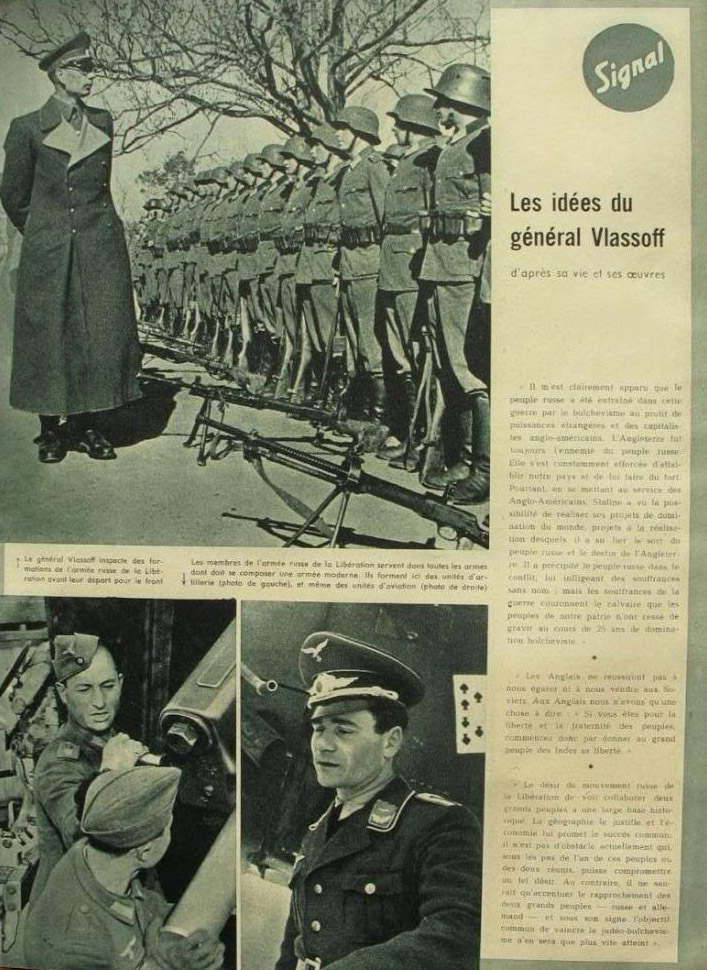
[Above: A page from a French edition of Signal Magazine featuring an article on General Vlasov (top).]
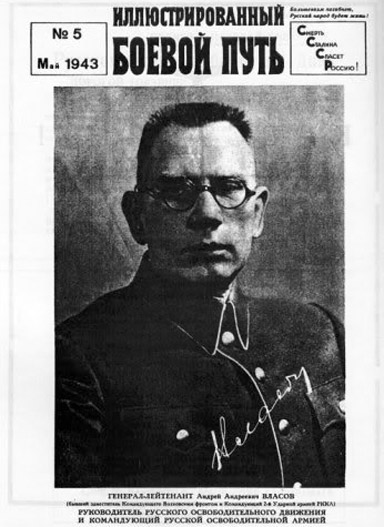
[Above: A Russian magazine featuring General Vlasov.]
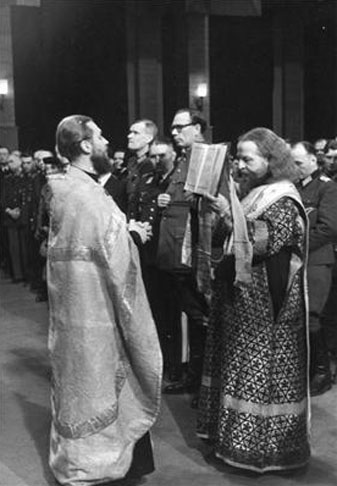
[Above: The blessing of the church to General Vlasov and his army of liberators, in Prague on November 1942.]
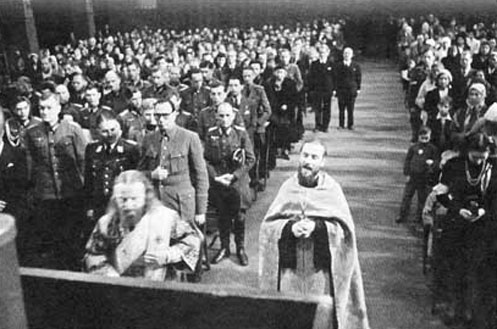
[Above: The blessing of the church to General Vlasov and his army of liberators, in Praque on November 1942.]
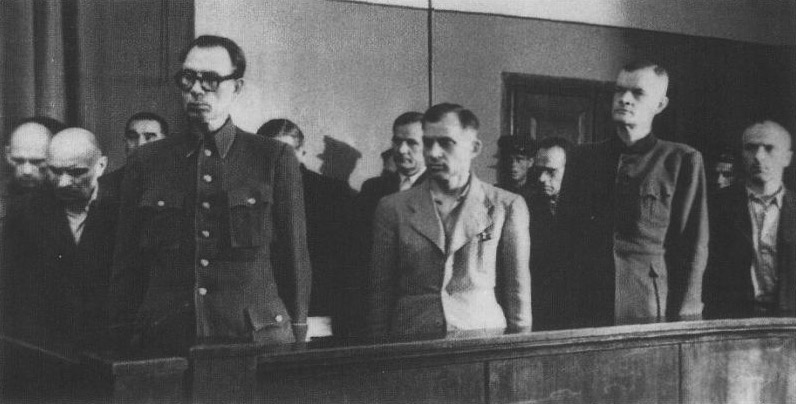
[Above: General Vlasov and his comrades being tried in a communist 'kangaroo court'.]
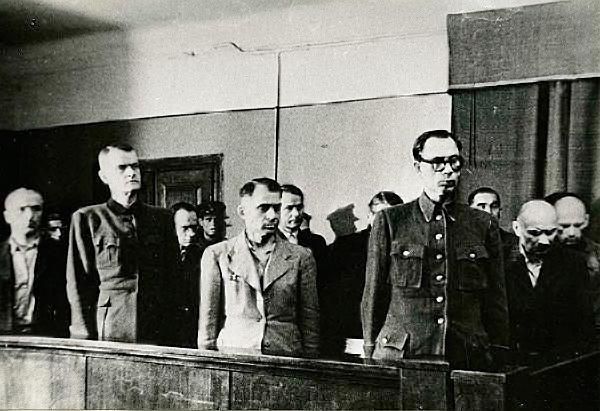
[Above: General Vlasov and his comrades being tried in a communist 'kangaroo court'.]
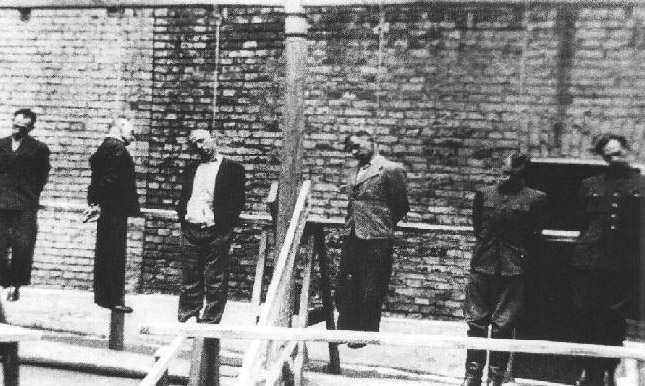
[Above: General Vlasov executed by the communists. Murdered for loving his mother Russia.
[Above: Martydom.]
[Above: A shrine to General Vlassov in Nanuet, New York! It is located in the cemetery of Novo-Diveyevo. The monument is approximately twelve feet tall and enclosed by a low fence. It is surrounded by several hundred wooden and stone crosses, each with the Russian Orthodox cross bearing three arms. Twice annually, on the anniversary of Vlasov’s execution and on the Sunday following Orthodox Easter, a memorial service is held for Vlasov and the soldiers of the Russian Liberation Army.]
[Above: Close-up. A portrait of General Vlasov, above him the symbol of the POA (Russian Liberation Army).]
[Above: The Orthodox, Byzantine or Russian (Orthodox) Cross, also known as the Suppedaneum cross. A variation of the Christian cross, commonly found in Eastern Orthodox Churches, as well as the Eastern Catholic Churches of Byzantine rite and the Society for Eastern Rite Anglicanism.]
[Above: Russian patriots that understand the truth honor Vlasov today.]
On January 8, 1946 Vlasov and eleven other senior officers, martyrs all, were murdered and thrown into a mass grave on the grounds of Lublyana prison.
Before his murder he told Wilfried Karl Strik-Strikfeldt (a Baltic German who worked closely with Vlasov and the Russian Liberation Army during WWII):
'...one day you will tell the others that Vlasov and his friends loved their country and were not traitors. Promise me.']
